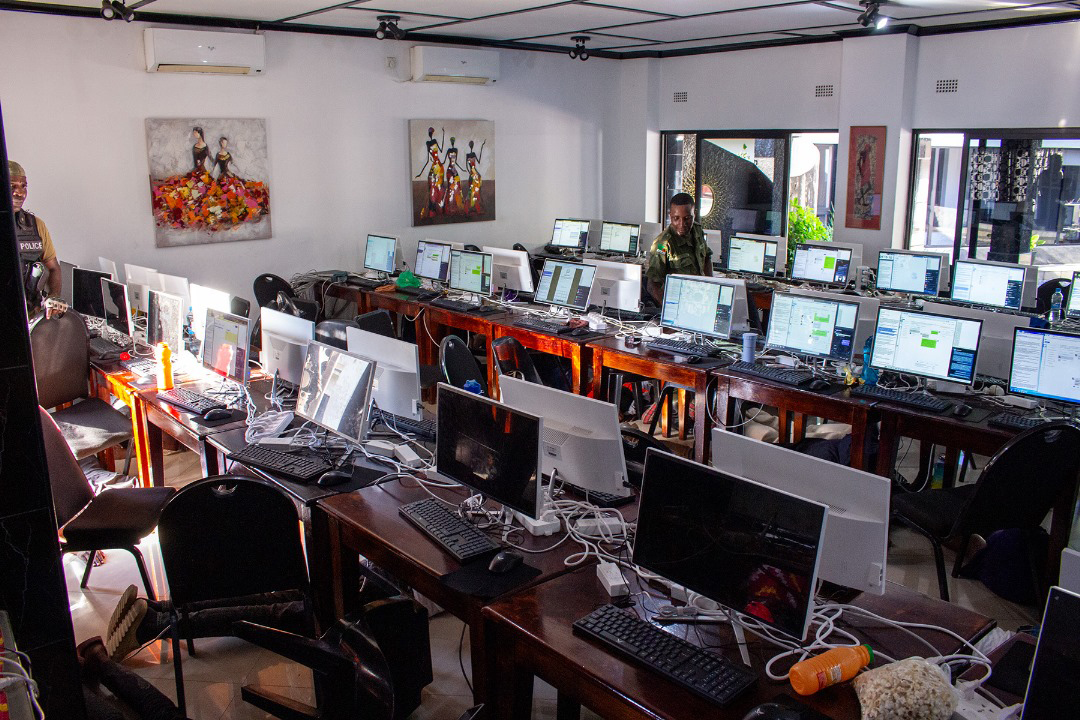Long jail terms for Chinese cybercrime gang in Zambia
Twenty-two Chinese nationals along with one Cameroonian man have received lengthy prison sentences for cyber-related offenses in Zambia.
Gu Tianjiao, the sole female member of the gang, sobbed “papa, papa” as she was sentenced to seven years in prison at the Lusaka Magistrates Court on Friday.
Leading the group, Li Xianlin, the mastermind, was sentenced to up to 11 years behind bars. Additionally, fines ranging from $1,500 to $3,000 (£1,180 to £2,360) were imposed on each member.
Zambian authorities disclosed that victims from various locations such as Singapore, Peru, and the United Arab Emirates fell victim to the gang’s online scams. Following a trial spanning several weeks, the offenders pleaded guilty to three charges: computer-related misrepresentation, identity-related crimes, and operating a network or service illegally.
The 22 individuals sentenced on Friday were part of a larger cohort of 77 suspects apprehended in April, linked to what authorities described as a “sophisticated internet fraud syndicate.”
The crackdown on a Chinese-operated firm in Lusaka came after a noticeable surge in internet fraud cases in Zambia, targeting individuals worldwide.
The Drug Enforcement Commission (DEC) highlighted the escalating instances of Zambians losing funds from their mobile and bank accounts due to money-laundering schemes extending to foreign countries. In April, numerous young Zambians were arrested for their alleged involvement in fraudulent activities, including internet scams and online fraud, after purportedly being recruited as call center agents, as stated by the DEC during the arrests.
The 22 people convicted in Lusaka on Friday held different positions in the Chinese-run Golden Top Support Services, the company at the center of the raid.
The company, located in Roma, an upmarket suburb of Lusaka, is yet to comment on the allegations.
The Zambian nationals were charged in April and released on bail so they could help the authorities with their investigations.
Authorities said the Zambians involved had been tasked “with engaging in deceptive conversations with unsuspecting mobile users across various platforms such as WhatsApp, Telegram, chatrooms, and others, using scripted dialogues”.
Among the equipment seized were devices allowing callers to disguise their location and thousands of SIM cards.
During the raid, 11 SIM boxes were discovered – these are devices that can route calls across genuine phone networks.
More than 13,000 SIM cards, both local and foreign, were also confiscated, demonstrating “the extent of the operation’s reach,” according to the DEC.
Two firearms and about 78 rounds of ammunition were confiscated and two vehicles, belonging to a Chinese national linked to the business, were also impounded during the raid.


